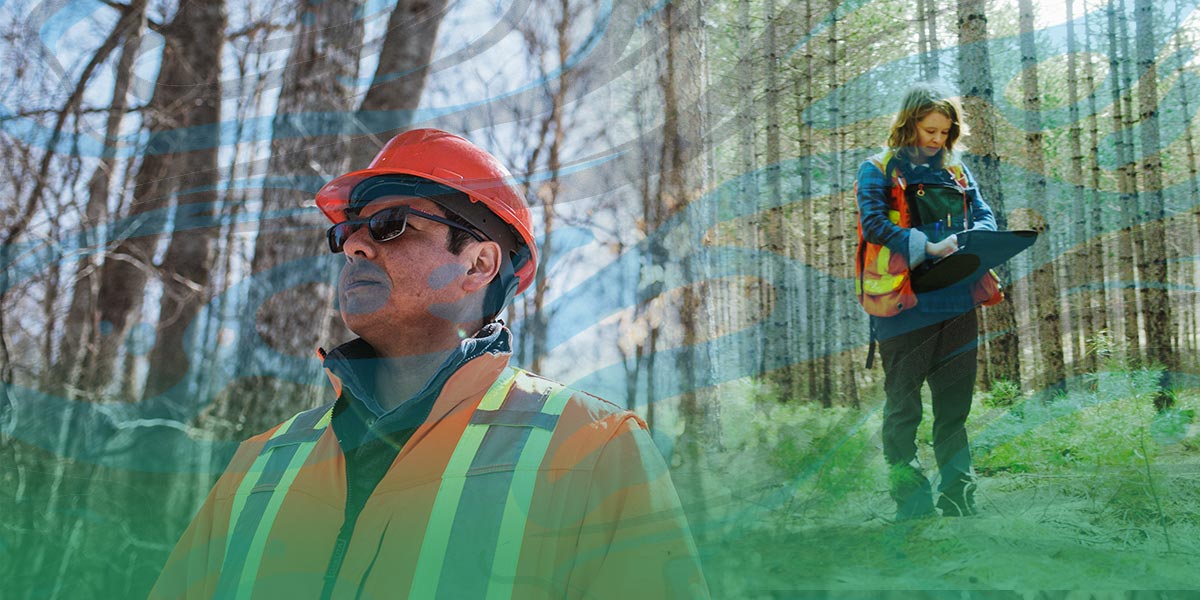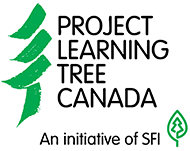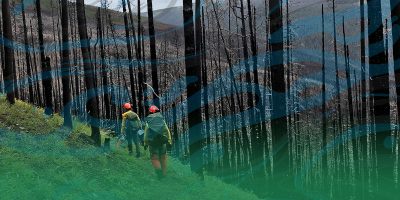Career Fact Sheets
Forester Dean Assinewe and Lacey Rose are both Registered Professional Foresters (RPF). Every day, foresters across Canada lace up their boots, put on their high-visibility vests; and venture out into the wild. They gather information, predict and identify problems, and come up with solutions to help manage forests sustainably. Some may even consider them caretakers of the forest. They balance ecological, social, and economic values. They also create detailed plans to harvest, regenerate, and monitor the health of forests. In this way, they ensure that important wildlife habitats and cultural areas are protected. Is it right for me?Since foresters work in the field, in the office, or in the lab, they have diverse skills. These include writing, technology, and plant and animal identification. Foresters should also be good communicators, as they must set up and moderate meetings and talk about their plans to many different people, including Indigenous communities and government representatives. You can find foresters in a variety of places doing many kinds of things:
Take our Green Jobs career personality quiz Forester salarySalaries vary depending on location and experience. They begin at around $45,000 and go up to around $92,000 for experienced foresters. The average salary in Canada is about $63,000. Forester education*In high school, take science, biology, social science, and math–all courses that provide important transferable skills for a forester. A bachelor’s degree in forestry or science is a good start. You can always transfer or upgrade your degree with one from an accredited forestry program. Most positions will require you to be a Registered Professional Forester (RPF). This designation means you adhere to a strict code of ethics for forest health and sustainability. You can apply for this designation once you’ve completed your degree. University
The Forest Professional Regulators of Canada provides a list of accredited programs on its website: www.fprc-orfpc.ca/accreditation *Not a complete list of resources. More resources |






